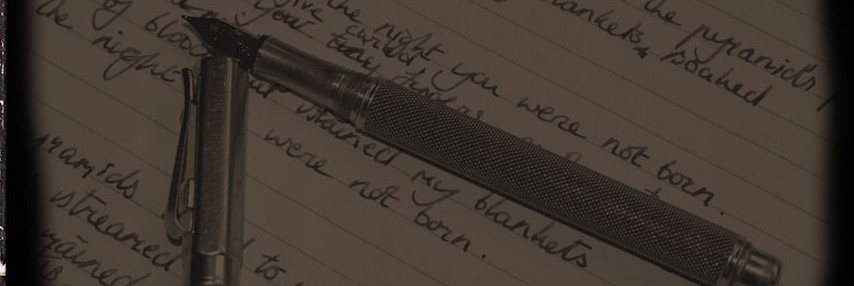This weekend, Abigail Wyatt (co-editor of Poetry24) asked whether it was hard to write poetry at the same time as fiction.
This week I will be submitting several short stories to various competitions along with a short memoir, I also have several poems I’m yearning to write. Can I do both? Or is my intent on honing the final drafts of my prose the reason why I can’t get off the mark with this week’s poems?
Nuala Ni Chonchuir* believes that whilst short fiction and poetry are without doubt different things, certain aspects of each form complement the other. Poets must be concise, so too the short fiction writer. Poets watch and dream and imagine, they take notes and have a good memory, so too the short fiction writer. Poets love words, they play with words, they agonise over the use or placing of a single word but this skill is not lost on a short fiction writer. I agree that writing poetry enhances my skills as a fiction writer and, I am sure, the reverse is true.
Sometimes the hardest part of starting a poem is getting that first line – once that is established the rest flow and it is often prose (and particularly fiction) that enables that first thought. I have to imagine the poem, become the poem, live the poem – just in the way that I live my characters as I write them. Once I am inside the poem then the rest just flows and all that remains is days of reading, re-reading, experimenting with line, enjambment and cutting.
Because I am a poet I know that I can mess with prose, I can tease grammar and play with words – so long as I do it knowingly and deliberately – there is never an excuse for bad grammar but experimental prose – that’s a definite must. If my paragraph is characterised with long sentences then how about throwing in a three or four word sentence somewhere in the middle – or even a fragment? Knowing what the green line on my word processor is for is important; knowing that I can consciously ignore it is crucial.
Today I had Cleaning Instructions published. It is not my first short story but it is the first to be published. I am thrilled, it looks amazing next to the artwork (not mine), it feels professional – it is professional. How did this story differ from my others? Well that’s another Blog but, one thing I know is that I brought poetry to my prose.
I played with words and sentences and structure. And once I’d written it (and sent it to be rejected), I read it again. And I cut. More purposely this time – as I do with my poems.
Whilst it is surely hard to work on several pieces at once (each requires full attention), I do think that you can use one form to complement the other – and that’s a good thing.
- Language and Style: A guide from a short story writer/poet in Short Circuit Vanessa Gebbie (Ed) 2009 Salt Publishing: London
